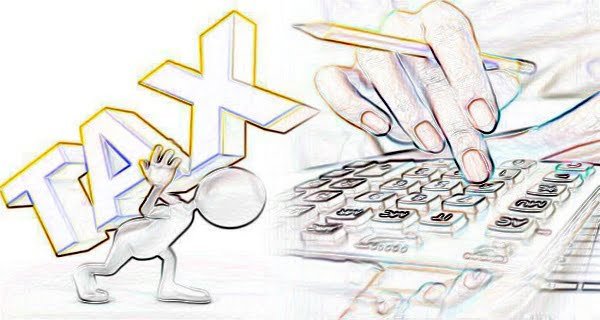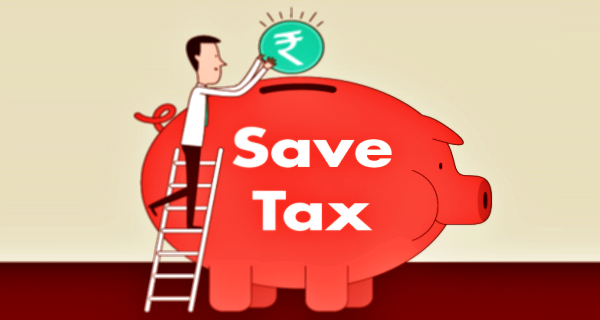
New Delhi: Tax payers generally know more about section 80c in the tax saving deduction of income tax. However, apart from this, there are many such provisions in income tax, due to lack of information, people can save tax, they cannot save or say that they cannot reduce tax deduction. There are 12 such provisions, not just one or right, which we are telling you today, in which the government rebates in tax for different and different things. Let us know today about all those Acts, due to which you can reduce the income tax further.
Section 80C
Income tax (Income Tax) Section 80C of Income Tax law is very important and common in terms of savings. Where a person comes in 30% tax slab of income tax (income tax) after salary or income from business, then he can save Rs 46,350 of tax liability by investing up to Rs 1.5 lakh only in section 80C of income tax law. is. In this, Section 80c benefit is given by giving the principal amount of EPF, PPF, Mutual Fund, PPF, NPF, Ham Laine and also in the school fees of the children.
Section 80CCD (1B)
Another way of saving tax is to invest NPS account of 50 thousand rupees under sub section 80CCD (1B). It is worth noting that this is considered to be in addition to the section 80c, in which case you can take up to a million rupees. Tax can be saved on the amount. 1,50,000 in section 80c and Rs 50,000 in 80CCD (1B).

Section 80CCD (2)
Employee can claim tax deduction even on contribution made by the employer in NPS account. Employer’s contribution is equal to 10 percent of the employee’s salary and DA (dearness allowance) is included. Keep in mind that with effect from FY 2020-21, the employer’s contribution to the retirement fund – EPF, Superannuation Fund, NPS, will be taxable in excess of Rs 7.5 lakh in a financial year. Apart from this, interest earned on such contribution will also be taxed. Thus, while availing tax benefits under this section, ensure that the employer’s contribution to your NPS account as well as EPF contribution does not exceed Rs 7.5 lakh in the financial year.
Section 80D
Tax can be saved on the premium paid for medical insurance under section 80D of income tax. If you pay premium for yourself, partner or children then you can save tax up to Rs 25,000. A rebate of up to Rs 50,000 can be availed if you can pay health insurance premiums for parents above 60 years of age. Therefore, paid for self (including spouse and dependent children) and senior citizen parents Gaya health insurance premium can help you save tax of up to Rs 75,000 in a financial year. If the taxpayer and parents are both senior citizens, then a deduction of up to Rs 1 lakh can be claimed in a financial year.
Section 80DD and Section 80DDB
Apart from section 80D, there are other sections that help you save tax. Which includes Section 80DD and Section 80DDB. He gets the benefit of section 80DD where he is incapacitated in himself or his family, his wife, children, brother, sister or he can also himself, for this, the expenses incurred for treatment are exempt from income tax. is. The deduction allowed depends on whether the dependency is disabled or severely disabled. If the dependent is at least 40% disabled, then the maximum deduction is Rs 75,000 and if the disability is 80% or more, then it is considered as a severe disability and there is a provision of maximum deduction of Rs 1.25 lakh.
At the same time, section 80DDB has a provision for tax exemption for the expenses of medical treatment made in relation to diseases or diseases. Section 80DDB provides deduction for medical expenses incurred for the treatment of specified diseases such as cancer, chronic kidney diseases etc. This deduction can be claimed for the expenses incurred on self or dependents. For persons below 60 years of age, whether self or dependent, the maximum deduction is Rs 40,000 whereas for senior citizens 60 years or older, the maximum deduction is Rs 1 lakh.
Section 80U
In order to claim deduction under section 80DD or 80U, it is necessary that the person himself or the dependent is suffering from some disease in which he is unable to work. The level of disability in these sections should not be less than 40 percent. However, deduction under Sections 80U and 80DD cannot be claimed simultaneously. Deduction under Section 80U is claimed by the person with disability while deduction under Section 80DD is claimed by the dependent who has disabled person. Have spent for the treatment of. The deduction amount is equal for both the disability and severe disability section.
Section 24
Apart from the tax benefit on home loan principal repayment under section 80C, you can claim a tax benefit of up to a maximum of Rs 2 lakh on the interest paid on the loan during a financial year. This benefit is available only for loans taken for property taken for self. If you are paying interest on a home loan for an under-construction property, this benefit will be available after the possession of the house, provided it is within five years. Interest paid during the construction period can be deposited and on the house
















































